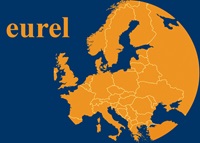This paper explores the interaction between Christian Churches and European institutions, with a particular emphasis on their influence on EU migration policies. It argues that Churches have played a prominent role in European integration from its early stages, particularly through the Catholic Church and Christian Democratic parties, which actively supported the unification of Europe. The signing of the Treaty of Maastricht (1992) marked a turning point by providing religious organizations with greater opportunities to engage in European governance and policymaking. Since then, Christian Churches have sought to shape the European project, establishing themselves as key actors in both the cultural and political spheres.
From the perspective of social constructivist theory, this paper examines the role of Christian Churches as non-state actors and identity-formers. While scholars generally recognize their contributions to shaping European identity and values, this study argues that Churches occupy a unique position in the process of European integration. Beyond their role in identity formation, they represent a substantial portion of national populations and operate within distinct Church-State relations, which vary across EU member states. This dual nature—as religious institutions and socio-political actors—grants them a distinctive influence in shaping European norms, particularly in relation to migration policy.
Christian Churches have actively contributed to constructing a European identity in which Christian values and ethical principles remain central. Their involvement became more pronounced with the establishment of Churches representations in Brussels, which facilitated dialogue with EU institutions. Article 17 of the Treaty on the Functioning of the European Union (TFEU) further institutionalized this engagement by providing a legal framework for structured interactions between religious organizations and European policymakers. This development has allowed Churches to advocate for policies aligned with their moral and humanitarian perspectives, particularly in response to migration challenges.
The role of Christian Churches in EU migration policy has been especially visible during the migration crises of 2015 and 2022. Religious organizations have established specialized institutions and networks to address migration issues, offering humanitarian aid, legal support, and policy recommendations. Despite competition from secular organizations, Christian Churches have positioned themselves as experienced and credible partners for EU institutions, leveraging their historical expertise in social justice and humanitarian work. Ultimately, their efforts underscore a broader ambition to shape the European agenda on migration, balancing religious values with the political realities of European governance.

 PDF version
PDF version
